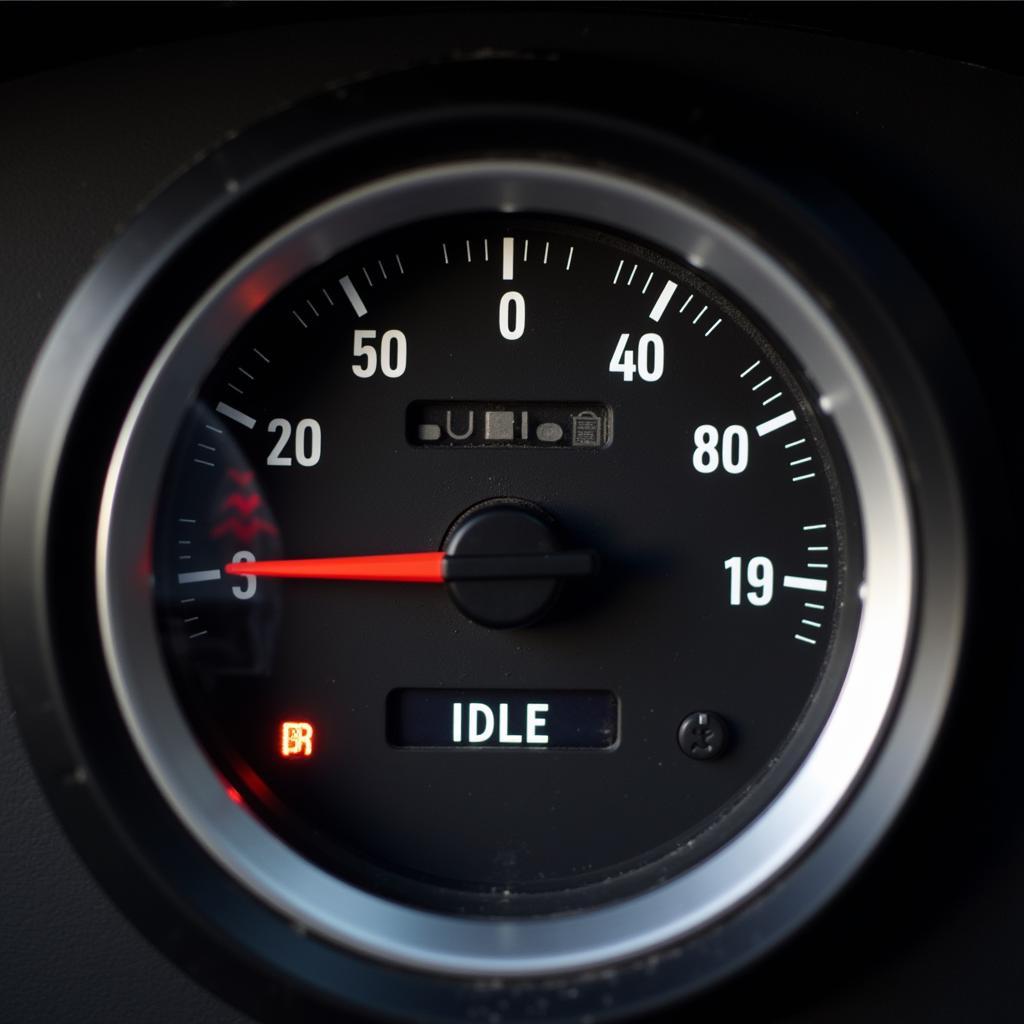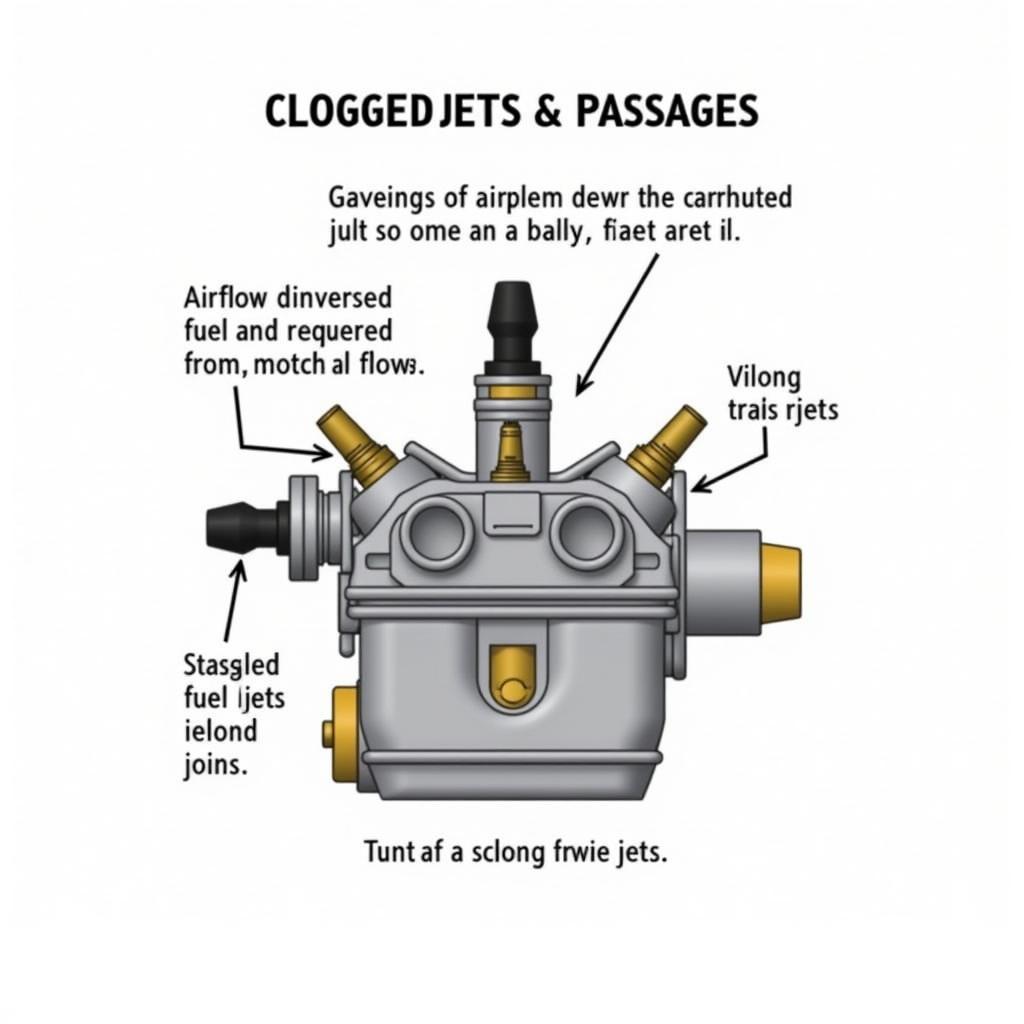Carburetor problems can be a real headache for car owners. Recognizing the symptoms of a failing carburetor is crucial for addressing the issue promptly and preventing further damage. This guide provides a detailed overview of Car Carburetor Problem Symptoms, helping you diagnose and fix these issues effectively.
A carburetor is responsible for mixing air and fuel in the correct proportions for combustion in an engine. When a carburetor malfunctions, it disrupts this delicate balance, leading to a variety of performance issues. Understanding these car carburetor problem symptoms can save you time, money, and frustration. After this opening section, you will find a link to another helpful resource on car carburetor problems.
Common Car Carburetor Problem Symptoms
Several telltale signs indicate a potential carburetor issue. These range from noticeable performance changes to more subtle indicators. Recognizing these symptoms early can prevent more serious engine problems.
- Difficult Starting: A faulty carburetor often makes it hard to start your car, especially in cold weather. The engine may crank repeatedly without firing up.
- Rough Idling: If your engine idles roughly or stalls frequently, a carburetor problem could be the culprit. The incorrect air-fuel mixture can cause unstable idling.
- Poor Fuel Economy: A malfunctioning carburetor can significantly reduce your car’s fuel efficiency. This is because the engine isn’t receiving the optimal air-fuel ratio for combustion.
- Engine Stalling: Frequent stalling, especially when accelerating or decelerating, can be a sign of a carburetor issue. This can be dangerous, especially in traffic. For more information about stalling, you might find our article on vacuum problems that can cause a car to stall helpful.
- Black Smoke from the Exhaust: Black smoke emanating from your car’s exhaust pipe suggests a rich air-fuel mixture, meaning too much fuel is being delivered to the engine. This often indicates a carburetor malfunction.
- Backfiring: Backfiring, a loud popping sound from the carburetor or exhaust, can be caused by an incorrect air-fuel mixture or other carburetor issues.
- Hesitation or Surging During Acceleration: If your car hesitates or surges when you press the accelerator, the carburetor may not be delivering fuel consistently. Similar to gas club car surging problem, this issue can be related to fuel delivery inconsistencies.
- Smell of Gasoline: A strong gasoline odor can indicate a fuel leak or an overly rich fuel mixture, often caused by a faulty carburetor.
 Car Carburetor Problem Symptoms: Rough Idle
Car Carburetor Problem Symptoms: Rough Idle
Why Do Carburetors Malfunction?
Carburetors can malfunction for various reasons, including:
- Clogged Jets and Passages: Dirt, debris, and varnish buildup can restrict fuel and air flow, disrupting the air-fuel mixture.
- Worn or Damaged Components: Over time, components like the float, needle valve, and accelerator pump can wear out or become damaged, affecting carburetor performance.
- Vacuum Leaks: Vacuum leaks in the carburetor or its associated hoses can disrupt airflow and cause a lean air-fuel mixture. This issue is similar to other vacuum problems that can cause a car to stall.
- Incorrect Adjustments: Improperly adjusted carburetor settings can lead to an imbalance in the air-fuel mixture.
 Car Carburetor Problem Symptoms: Clogged Jets
Car Carburetor Problem Symptoms: Clogged Jets
What to Do if You Suspect a Carburetor Problem
If you experience any car carburetor problem symptoms, it’s essential to have the issue diagnosed and addressed by a qualified mechanic. Attempting to repair a carburetor without proper knowledge and tools can exacerbate the problem. You might find our article on 1984 lincoln town car problems useful for similar issues in older vehicles.
“A thorough inspection is crucial,” says John Smith, Senior Automotive Technician at Smith Automotive. “A professional can accurately diagnose the problem and recommend the appropriate course of action.”
Carburetor Problem Symptoms: Troubleshooting Tips
While professional diagnosis is recommended, here are some basic troubleshooting steps you can take:
- Check the Air Filter: A dirty air filter can restrict airflow and cause a rich mixture. Replace the air filter if necessary.
- Inspect for Vacuum Leaks: Check for cracks or loose connections in the vacuum hoses connected to the carburetor.
- Check the Fuel Filter: A clogged fuel filter can restrict fuel flow and cause a lean mixture. Replace the fuel filter if it’s dirty.
However, for complex carburetor issues, consulting a mechanic is the best course of action. As Jane Doe, Lead Mechanic at Doe’s Auto Repair, puts it, “Attempting complex carburetor repairs without proper training can lead to further damage and costly repairs.”
Conclusion
Recognizing car carburetor problem symptoms is vital for maintaining your vehicle’s performance and preventing further engine damage. From difficult starting and rough idling to poor fuel economy and backfiring, understanding these signs allows you to address issues promptly. While some preliminary checks can be done at home, it’s essential to consult a qualified mechanic for accurate diagnosis and repair. For further assistance, connect with AutoTipPro at +1 (641) 206-8880 or visit our office at 500 N St Mary’s St, San Antonio, TX 78205, United States. You may also find this resource on lincoln town car idle problems helpful if you experience idle issues.





Leave a Reply